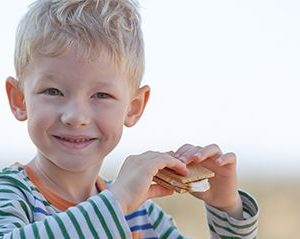- The Best Time of Day to Drink Bone Broth to Maximize Health Benefits
- 8 Ways to Increase Dopamine Naturally
- 7 Best Breads for Maintaining Stable Blood Sugar
- Gelatin vs. Collagen: Which is Best for Skin, Nails, and Joints?
- The Long-Term Effects of Daily Turmeric Supplements on Liver Health
- Could Your Grocery Store Meat Be Causing Recurring UTIs?
- Are You Making This Expensive Thermostat Error This Winter?
- Recognizing the Signs of Hypothyroidism
- 10 Strategies to Overcome Insomnia
- Could Artificial Sweeteners Be Aging the Brain Faster?
Pandemic May Be Affecting How Parents Feed Their Kids

There have been good and bad changes to U.S. children’s diets during the COVID-19 pandemic, researchers say.
“Providing healthy meals and snacks to our kids can be a challenge even when we’re not experiencing a pandemic,” said senior study author Susan Carnell. She’s an associate professor of psychiatry and behavioral sciences at the Johns Hopkins University School of Medicine, in Baltimore.
“The pandemic has massively disrupted families and caused a lot of stress, and this has naturally affected interactions around food,” Carnell said in a school news release.
To find out how the pandemic is affecting children’s diets, the Johns Hopkins Medicine researchers surveyed 318 parents of children aged 2 to 12 across the United States.
Parents who reported higher levels of stress due to the pandemic were more likely to use food to manage children’s emotions and behaviors. For example, they might use less healthy food and snacks, such as cookies, to reward their children, the study found.
Stress specifically related to COVID-19 among parents was also associated with children eating more sweet and savory snacks throughout the day.
But the survey also revealed some positive trends. For example, 75% of respondents said their children had regular breakfast, lunch and dinner times.
The researchers also found an association between lower stress levels, consistent mealtimes and routines, and positive food-related interactions, such as parents eating with or engaging with their children around mealtimes.
This is likely due to parents and children spending more time at home and having more opportunities for food-related interaction, according to the study authors.
The report was posted online in January in the journal Appetite, in a special issue about the pandemic’s effects on eating habits and weight.
Study lead author Elena Jansen is a postdoctoral fellow in psychiatry and behavioral sciences at the university. She said, “The pandemic seems to have produced both negative and positive impacts on food parenting practices. We look forward to learning how new routines will become habitual as the pandemic progresses.”
The researchers offered advice on how parents can help their children eat a healthy diet during the pandemic.
- Have regular meal times and include children in meal preparation.
- Eat together as a family without television and other distractions.
- Model healthy eating habits for children.
- Be responsive to the hunger and fullness levels of children when offering food.
More information
The American Academy of Pediatrics has more on nutrition.
SOURCE: Johns Hopkins Medicine, news release, Jan. 26, 2021
Source: HealthDay
Copyright © 2026 HealthDay. All rights reserved.










